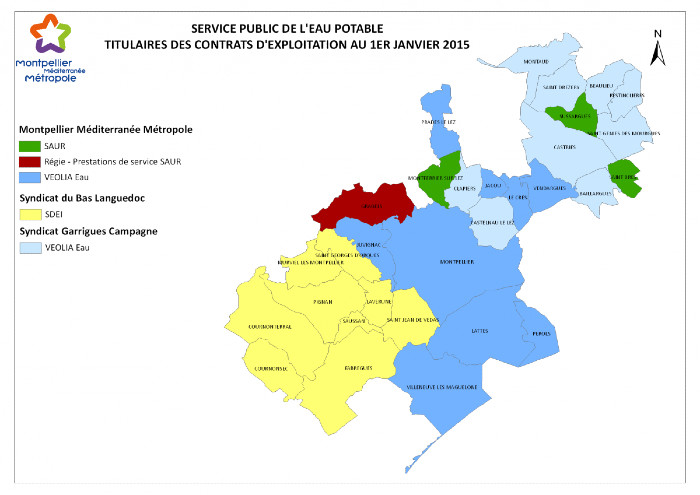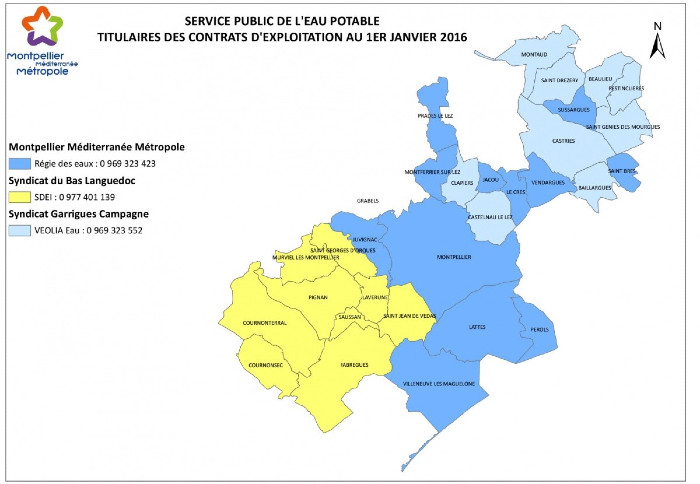This view of governance has been in crisis since the mid-2000s as it has come up against a movement advocating the remunicipalization of water. This has been demonstrated in many cities in France and in the majority of European cities, emphasizing the fact that public management that involves citizens, politicians and employees of the public utility in the decision-making process can enable social and sustainable management that protects this natural resource.
The question of the choice of management methods from ideological, political, technical, economic and environmental angles, etc., has been the subject of numerous studies, tending to demonstrate that the choices made by decision-makers were only made from purely universalist aspects. However, in the light of the example of Montpellier in 2014, I wish to demonstrate that a study of the mental schemes of decision-makers can transcend this debate and provide a better understanding of what is at stake in local authorities that change the management mode of their services.
|
|
© source: Montpellier Méditerranée Métropole |
Key words: Public water management, public service delegation, public policy, sociology of decision-making, governance, management modes, remunicipalization, Montpellier








